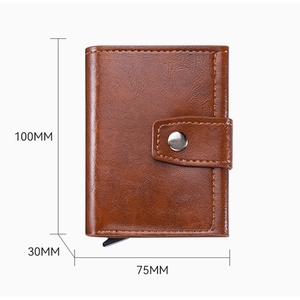Understanding Hardware Wallet Price: An In-Depth Look
Hardware wallets have become an essential tool for securely storing cryptocurrencies. The hardware wallet price is a key consideration for both beginners and seasoned investors alike. These devices offer offline storage options to protect digital assets from hacking attempts and online vulnerabilities. In this guide, we will delve into various aspects surrounding hardware wallet price, including different types of wallets, their functions and features, scenarios of use, and how to choose the right one for your needs.
Types of Hardware Wallets and Their Prices
The market is flooded with numerous types of hardware wallets, catering to varied customer preferences and requirements. The hardware wallet price can vary significantly based on features, privacy options, and usability. Here are the primary types of hardware wallets you might consider:
- USB Wallets: Traditional USB-enabled wallets that connect directly to your computer. Prices typically range from $50 to $150.
- Bluetooth Wallets: These wallets can connect wirelessly to your smartphone, priced between $75 and $200 for added convenience.
- Multi-Currency Wallets: Designed to support a variety of cryptocurrencies, these wallets usually start from $100 and can go up to $300.
- Specialized Wallets: Tailored for specific functions or cryptocurrencies, their prices can vary greatly based on features, ranging from $200 to $400.
Function and Features That Influence Hardware Wallet Price
The price of a hardware wallet is largely determined by its functionalities and features. Here are some significant aspects that influence the hardware wallet price:
- Security Features: State-of-the-art encryption and security measures can significantly increase a wallet's price.
- User Interface: Wallets with more intuitive and user-friendly interfaces may command higher prices due to the improved user experience.
- Backup and Recovery Options: Advanced recovery solutions, such as multiple backup options, could add to the cost.
- Durability: High-quality materials within hardware wallets can enhance durability and longevity, impacting the overall price.
Scenarios Where a Hardware Wallet Price Matters
Understanding hardware wallet price is crucial in several scenarios. Below are instances where choosing the right wallet impacts more than just the initial expense:
- Long-Term Investment: If you plan to hold cryptocurrencies long-term, investing in a higher-priced, more secure wallet could save you from potential hacks.
- Frequent Transactions: For users who actively trade, a user-friendly and supportive wallet might be worth the higher price for efficiency.
- Specific Cryptocurrency Needs: If you specialize in certain coins, specialized wallets may represent added value, justifying a higher price point.
- Multi-Asset Management: Those managing a diverse portfolio might benefit from a multi-currency wallet, which can justify its higher cost through convenience.
How to Choose the Right Hardware Wallet Based on Price
Selecting the right hardware wallet involves considering various factors alongside the hardware wallet price. Here are some practical tips to guide your decision:
- Assess Your Needs: Determine your primary requirements—do you need a wallet for simple storage or for frequent trading?
- Compare Specifications: Look closely at security features, supported currencies, and usability of different models.
- Review Customer Feedback: Investigate reviews and ratings for insights into reliability and user satisfaction.
- Consider Future Requirements: Choose a wallet that allows for updates or upgrades, accommodating future crypto innovations and your potential investment growth.















































